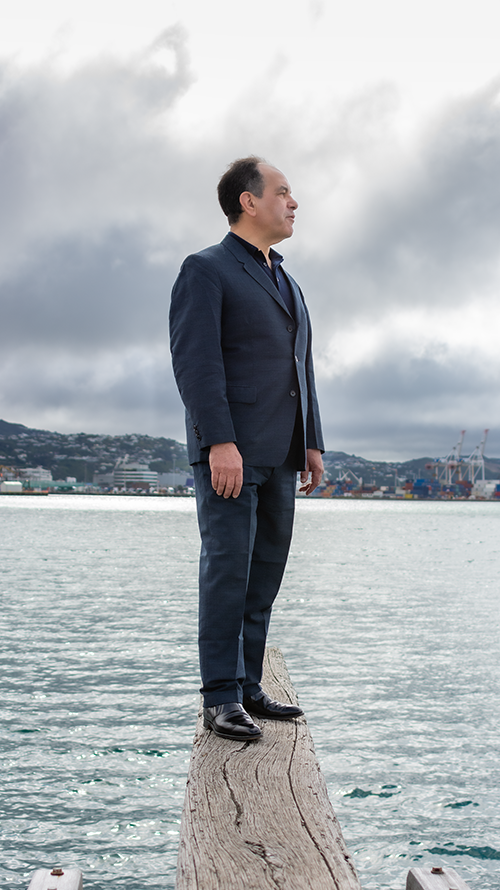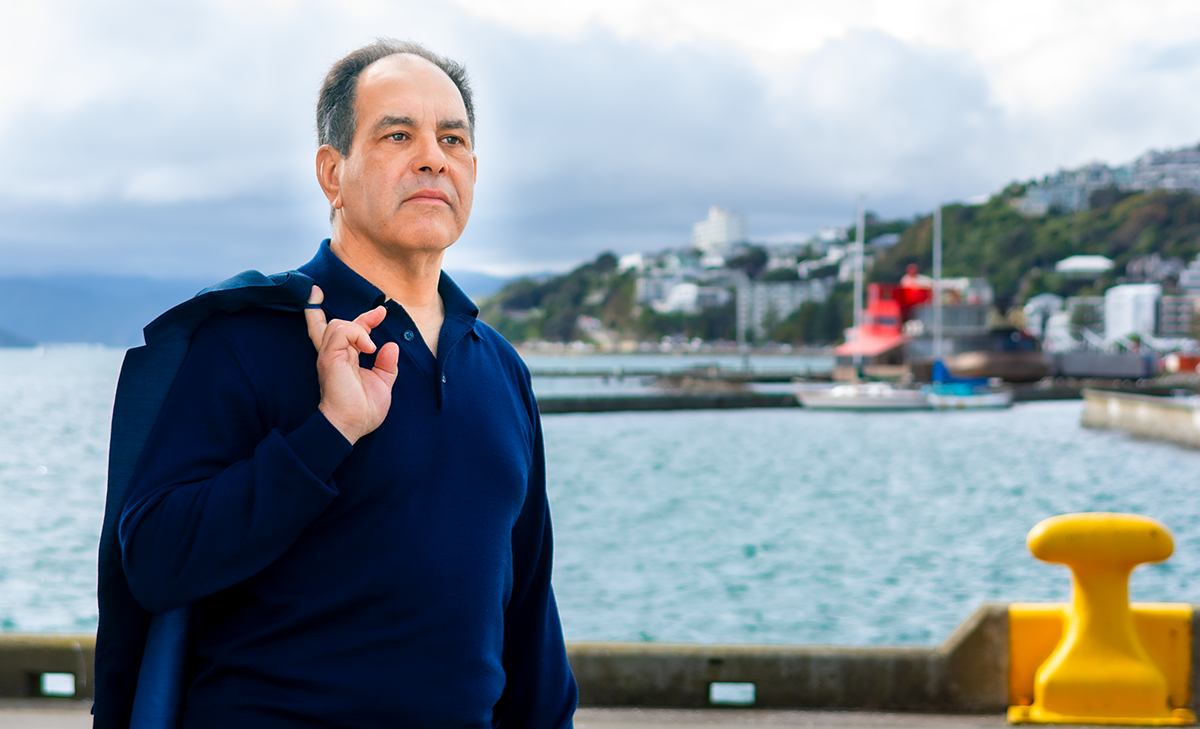International conductor Simon Romanos has performed throughout Europe and Australasia. His repertoire is extensive. His specialty is the great classical, romantic, and 20th Century repertoire. He has also founded an early music ensemble, and premièred many contemporary works.
He returned to New Zealand after a substantial career in Europe, Britain, and Australia. Romanos is now based in Wellington where he is General Music Director of Eternity Opera.
 Communicating the composer’s intentions, collaborating with players
Communicating the composer’s intentions, collaborating with players
In performance, Romanos’s goal is to forge a direct link between the audience and the composer’s intentions.
‘I see myself as a communicator first of all — between the composer, the musicians, and the audience.
‘I studied composition for five years, not to compose but to get inside the composer’s head. I want to understand what Mozart or Monteverdi, Schumann or Mahler is saying to us.
‘I need to understand the process of composing so I can work backwards to the composer’s raw inspiration that drives the emotion of the piece I am conducting.’
A protégé of Solti
Romanos is a maestro in the German Kapellmeister tradition. He worked his way up as a coach through the opera houses of Australia and Germany, mentored by Sir Georg Solti, Sir Colin Davis, and Sir Charles Mackerras.
A musical collaborator, and an expert with singers
Romanos works collaboratively with the orchestral players. ‘I take a kind of chamber music approach. I love it when the players want to own the music, and give their own best ideas.
‘I work from building a sound, and end working on the structure. Everything in rehearsal is a preparation, and so the result on the night builds on that structure, and arrives in the heat of spontaneity.’
Singers say they appreciate Romanos’s ability to follow and breathe with them while maintaining the musical line. As well as conducting opera, Romanos as pianist has coached or accompanied many singers including Grace Hoffmann, Birgit Nilsson and Joan Sutherland.
General Music Director at Wellington’s Eternity Opera
Romanos was appointed to Wellington’s Eternity Opera in 2015. He is now General Musical Director. The company specialises in presenting the greats of the opera repertoire, sung in accessible English.
Romanos hand-picks the instrumental ensemble from Wellington’s leading orchestral players. The singers are local professionals, several of whom have gone on to international careers.
Romanos conducted Don Giovanni, the company’s first production, in 2016, and Marriage of Figaro in 2017.
In their 2018-19 season Eternity Opera produced Madame Butterfly and Rigoletto. Romanos conducted Orfeo by Monteverdi, marking the composer’s 450th birthday year and the 375th anniversary of his death.
The company has built an ensemble of over 30 professional singers and two orchestras. One is devoted to romantic opera, and the other to renaissance opera on original instruments. Further expansion of repertoire and personnel is underway.
Music from the cradle to the stage
Romanos has childhood memories falling asleep to the sound of his parents and their friends singing Lieder.
From school age, he took piano lessons with Ariadne Danilow. Her memories of musical life in Vienna influenced him deeply, and shaped his future career.
Romanos was still in short pants when he first conducted his school choir at Scots College. His skill was immediately recognised by the adjudicator of the choir competition.
Romanos studied composition at university, then won scholarships to study conducting in Sydney and Melbourne. He worked with Sydney and Melbourne symphonies, making recordings for ABC Radio.
Performances in Western and Eastern Europe
He gave in to the lure of Vienna, spiritual home of classical music and the hub of the Austro-German music world. He studied privately, performed, and formed the Romanos Ensemble. And he began to work in the German opera system, culminating in a guest contract at the Stuttgart State Opera.
Romanos moved on to London to broaden into other forms of music. He received invitations from ensembles like the Oxford Orchestra da Camara and festivals like the Royal Academy of Music’s composer festival for Franco Donatoni.
He was one of the first Western conductors to get regular engagements behind the Iron Curtain before the end of communism, performing regularly in Hungary, Yugoslavia, and East Germany.
After more than a decade in London, he was attracted back to Wellington by the pull of a quieter life, and the high quality of local music and musicians.
